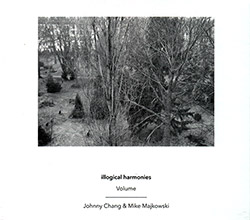
A joint composition for violin and double bass, developed over six months in 2015 by violinist and Wandelweiser composer Johnny Chang with bassist Mike Majkowski, a fragile and beautifully revealing work in 5 parts that moves slowly through subtle harmonic changes.
Out of Stock
Quantity in Basket: None
Log In to use our Wish List
Shipping Weight: 3.00 units
Sample The Album:
Mike Majkowski-doublebass
Johnny Chang-violin
Click an artist name above to see in-stock items for that artist.
Label: Another Timbre
Catalog ID: at98
Squidco Product Code: 22326
Format: CD
Condition: New
Released: 2016
Country: UK
Packaging: Cardboard Gatefold
Recorded in Berlin, Germany, Spring - Autumn, 2015 by the artists.
"A joint composition for violin and double bass, developed over six months in 2015 by violinist and Wandelweiser composer Johnny Chang with bassist Mike Majkowski. A music of restrained and lyrical beauty, exquisitely woven from the surrounding silence. "What appeals to me is a sense of close listening - a trust that we're both fully aware of the pitches and intonation the other is using, and working with those details."-Another Timbre
"Volume" is a collection of five compositions, wrote from improvisations. Mainly constructed on clear structures, with a lot of sustained sounds and a restrained use of pitch and tunes, the Illogical Harmonies duo explore a great attention to timing and duration, as well as interaction between both instruments playing the same tune. There are a lot of mimimal moments here, but also a lot of gracious and cleared melodies in each movements. The duo doesn't explore a large palette of sounds, IH rather explores the capacities of dialogue between two sounds and two instruments (double bass and violin), they explore the nature of pitch, its duration, its texture, its intonation as well as its dynamic, and they explore all that with delicacy, fineness, virtuosity and purity . A great disc by two Konzert Minimal members."-Julien Heraud, Improv-Sphere
Interview with Mike Majkowski
You call your duo 'Illogical Harmonies': what does the name refer to?
Funnily enough, the name doesn't refer to anything specific! If I remember correctly, Johnny casually came up with the term during one of our rehearsals, and we both decided it had a nice 'ring' to it, so we made it our duo name. Since then, we've had quite a few people come up to us asking about the meaning of the name, and coming up with meanings themselves, drawing parallels with the music based on their own observations. That's quite a nice thing in itself, I feel. It's open for interpretation.
Is 'Volume' a jointly-composed piece? How did it work, and was there a good deal of improvisation involved in the process?
Yes, it's a jointly composed piece, which grew out of our practise / recording / listening routine and evolved over the course of several months. In the beginning, we would improvise pieces (some completely open and others direction- or time-based with loose guidelines). Everything was recorded and we'd listen back. Through listening, we'd pick out the most interesting 'moments' or 'movements' or 'sections.' We'd work out what was happening in these 'moments' and transcribe them. Then we'd treat each of these isolated moments as individual pieces in themselves, and start the process again: record extended versions of these 'pieces,' listen back, figure out what the piece needs / what it doesn't need / where it wants to go; refining the pieces and refining our 'scores' as the pieces evolved. Sometimes we would play very different versions of these pieces to see how far we could push things (though we were fine-tuning the pieces through this process, they were still always open for interpretation). Listening back to the recordings as part of this process revealed so much. Over time we began to understand the pieces more and more, and we began combining various sections from various pieces, and a larger structure grew out of this. In a way, 'Volume' is made up of several sub-pieces, each with a common flavour.
What you describe is obviously a fruitful and distinctive, but also a time-consuming practice. Do you think that the culture of Berlin's music scene is intrinsic to making such things possible, or could it be done anywhere? And - while we're on the subject - how have you found Berlin since you moved there from Australia? Has if affected the development of your music?
I use a very similar process in the development of my solo double bass music (recording, listening, analysing, refining), and this already began before I moved to Berlin. So I don't think Berlin, specifically, is intrinsic to allowing a time-consuming practice to unfold. Having said that, I have delved deeper into this form of practice since living here, as I've been giving myself more time and space to evolve ideas and process information. This has, in turn, led me into some new musical areas which I hadn't foreseen. For example, aside from the development of my acoustic pieces, I've been producing more and more music at home which is largely constructed out of layered recordings. This has been a new direction that I've been really enjoying, which organically grew out of this process.
I feel that the more time I spend with something (an idea, an approach, a sound), the more possibilities it presents to me. And this creates a sort of feedback loop. New ideas are born out of it and parallel developments begin to occur. I try to take care to nurture each idea that comes up. It feels like I'm collaborating with the music I'm making.
Could you describe how you came to collaborate with Johnny Chang, and what appealed to you about the idea of working with him in a duo context?
We first started playing together as members of Konzert Minimal, performing Wandelweiser (and related) music. I joined KM in late 2012 / early 2013. Aside from playing in this group, we would hang out regularly and discuss music, sharing ideas and observations; the idea to try something as a duo emerging naturally out of this. The first concept that came up was two parallel solos (inspired by a concert Johnny played with Lucio Capece, Hannes Lingens and Koen Nutters - where they performed four collective solos). It felt like a logical thing for us to try as a duo at the time. This was in 2014. During our initial rehearsal, we also decided to improvise a bit and record it to see what it sounded like. Our approach to improvising together was informed by our playing in Konzert Minimal, and we organically tuned into aspects we focused on in KM, such as collective listening and duration. Soon enough this felt like the natural thing for us to do as a duo, and that's what we continued to pursue, and began to develop pieces together. What appealed to me was a sense of close listening - a trust that we're both fully aware of the pitches and intonation the other is using at all times, and working with those details. Also both being interested in deceptively 'simple' structures - such as sustaining a unison tone, or moving back and forth between two pitches - and feeling that there is already so much (pitch) material within that held unison or those two tones.
Yes, the simplicity of structure is one of the beguiling and attractive things about your CD, I think. But tell us about yourself. What is your background, and how did you come to experimental music?
I took up the double bass after first hearing Charles Mingus, whose music and bass playing had a huge impact on me. I went on to study jazz formally in Sydney, but was always very much interested in non-standardised forms of jazz, including free-form jazz, and would play such music with like-minded student friends of mine. Also important to my musical development was studying classical bass technique + repertoire with one of the principal bassists form the symphony, and taking private lessons in counterpoint, which I did very diligently for two and a half years. In parallel to all of this, being interested in discovering other musical styles which also incorporated improvisation, I became heavily involved with the improvised-music community in Sydney. Within this community and its regular concert series, I was exposed to lots of experimental and improvised music (both acoustic and electronic, as well as electro-acoustic), and met and played with a whole bunch of musicians from varying musical backgrounds. Not to mention discovering many (new to me at the time) composers and instrumentalists. I became inspired to seek new methods of sound production on my instrument, and develop a musical palette on my own. And it has all progressed from there.
Aside from illogical harmonies, what other musical projects and collaborations are you currently involved in?
The main things I'm involved in at the moment, aside from illogical harmonies, are: two parallel solo projects - one being purely acoustic double bass music, and the other being multi-layered music utilising combinations of various acoustic and non-acoustic sound sources. Then there's 'Lotto' which is a group with guitarist Łukasz Rychlicki and drummer Paweł Szpura. For the past few months, flautist Rebecca Lane and myself have been working on a piece written by Cat Lamb, which is for microtonal bass flute + microtonal double bass. And playing with Konzert Minimal.
Do you have a sense of the direction in which your music is moving, or do you just follow your instincts without thinking about where you are heading?
In the case of my solo work, I think a lot about where it's heading and what to try next. In the beginning my focus was purely acoustic, and this has evolved into a not-only acoustic approach. During the creative process of producing an album, I do use my instincts, sure, but it's often within the framework of an image I have in mind or a certain atmosphere I wish to convey. Sometimes the visions are concrete, and sometimes they're slightly ambiguous, in which case I will allow for the piece itself (as well as certain sounds) to lead the way. It's nice to balance the two, and there are times where an initial idea can change completely throughout the developmental process. With developing an acoustic piece, I use a process of recording, listening, analysing, writing, recording. until I've refined a structure that I feel is ready for performance. With the multi-layered music, I spend time finding the right sound-sources and the right resonances, as well as processing certain sounds until they feel right to work with. Then I spend time assembling and arranging this material into pieces. In both cases, there is an ongoing process of revision. Sometimes a previous piece or album will provide the basis of inspiration for the next one.
With collaborative projects, each one can have its own approach. It's great to aim towards something together with others, conscientiously developing music, and finding ways of moving forward.

The Squid's Ear!
Artist Biographies
• Show Bio for Mike Majkowski "Mike Majkowski is a double bassist / composer born in Sydney, Australia. Currently based in Berlin. Active in the fields of improvised, composed and exploratory music. Performs as a soloist + with a number of collaborative projects (some of which are featured in this site) mike is currently exploring the spectral qualities of double bass resonance, examining deliberate frequencies and circumstantial resonance. His music also explores the relationship between physicality and sonority, with the aim of creating a sense of stillness." ^ Hide Bio for Mike Majkowski • Show Bio for Johnny Chang "Berlin-based composer-performer Johnny Chang engages in extended explorations surrounding the relationships of sound/silence and the in-between areas of improvisation, composition, performance and listening. Current collaborations/projects include: Antoine Beuger, Alessandro Bossetti, Lucio Capece, Olivier Di Placido, Jürg Frey, Chris Heenan, Christian Kesten, Annette Krebs, Luke Munn, Koen Nutters, Michael Pisaro, Derek Shirley." ^ Hide Bio for Johnny Chang
11/20/2024
Have a better biography or biography source? Please Contact Us so that we can update this biography.
11/20/2024
Have a better biography or biography source? Please Contact Us so that we can update this biography.
Track Listing:
1. I 4:22
2. II 11:04
3. III 6:35
4. IV 21:16
5. V 11:41
Compositional Forms
Stringed Instruments
Duo Recordings
European Improv, Free Jazz & Related
New in Compositional Music
Search for other titles on the label:
Another Timbre.

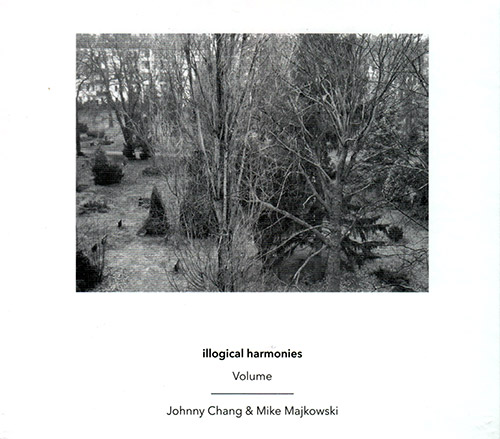
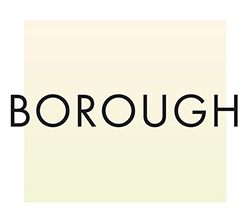



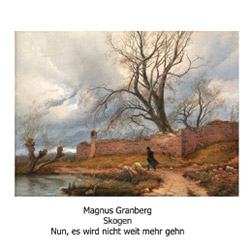
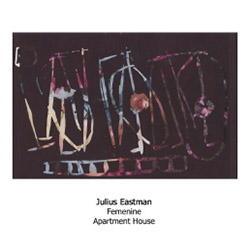
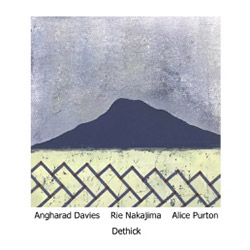
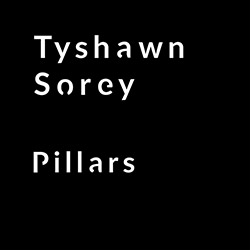


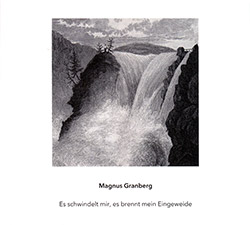








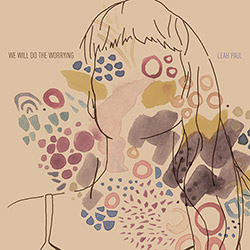
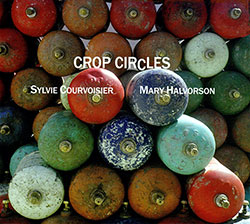
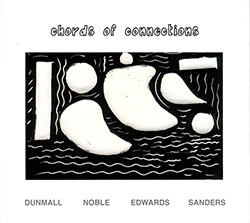
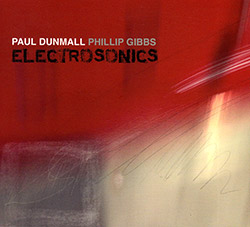
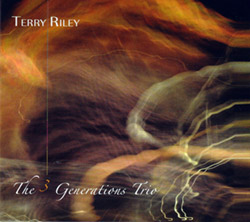


![Guy, Barry / Ken Vandermark: Occasional Poems [2 CDs]](https://www.teuthida.com/productImages/misc4/34849.jpg)
![Novoa / Carter / Mela Trio: Vol.1 [VINYL]](https://www.teuthida.com/productImages/misc4/35236.jpg)


![Elephant9 : Mythical River [VINYL]](https://www.teuthida.com/productImages/misc4/34624.jpg)
![Evans, Peter (Evans / Eldh / Black): Extra [VINYL]](https://www.teuthida.com/productImages/misc4/35279.jpg)

![McPhee, Joe: Straight Up, Without Wings [BOOK]](https://www.teuthida.com/productImages/misc4/35454.jpg)
![Jeck, Philip: rpm [2 CDs]](https://www.teuthida.com/productImages/misc4/35455.jpg)













![Barker / Parker / Irabagon: Bakunawa [VINYL]](https://www.teuthida.com/productImages/misc4/35533.jpg)
![Blaser, Samuel / Marc Ducret / Peter Bruun: Dark Was The Night, Cold Was The Ground [VINYL 10-inch]](https://www.teuthida.com/productImages/misc4/35492.jpg)








![Warren, Kenny (Warren / Hoffman / Ellman): Sweet World [VINYL]](https://www.teuthida.com/productImages/misc4/35451.jpg)




![Blake, Ran / Dave Knife Fabris: Live Amsterdam 2006, First Visit [CD + POSTCARDS]](https://www.teuthida.com/productImages/misc4/35275.jpg)













![DNS: Taking Big Bites Of The Khandas Three Cafes Deep [2 CDs]](https://www.teuthida.com/productImages/misc4/35334.jpg)




![Cleaver, Gerald: The Process [VINYL]](https://www.teuthida.com/productImages/misc4/34966.jpg)




![Alva Noto: HYbr:ID II [VINYL 2 LPs]](https://www.teuthida.com/productImages/misc4/35201.jpg)

![Baron, Derek / Luke Martin: Distinct and Concealed [CASSETTE + DOWNLOAD]](https://www.teuthida.com/productImages/misc4/35079.jpg)

![Lyle, Erica Dawn : Colonial Motels [CASSETTE + DOWNLOAD]](https://www.teuthida.com/productImages/misc4/35080.jpg)









![Sanna, Claudio: Compositori Sardi Contemporanei II [2 CDs]](https://www.teuthida.com/productImages/misc4/35317.jpg)







![Zurria, Manuel: Fame di Vento [3 CDs]](https://www.teuthida.com/productImages/misc4/35167.jpg)

![Granberg, Magnus / Nattens Inbrott / Skogen: Holde Traume, Kehret Wieder! [2 CDs]](https://www.teuthida.com/productImages/misc4/35038.jpg)
![Frey, Jurg: Outermost Melodie [2 CDs]](https://www.teuthida.com/productImages/misc4/35039.jpg)

![Pavone, Jessica: Reverse Bloom [VINYL]](https://www.teuthida.com/productImages/misc4/34895.jpg)




![Modney (Modney / Wooley / Gentile / Roberts / Pluta / Symthe / ...): Ascending Primes [2 CDs]](https://www.teuthida.com/productImages/misc4/34852.jpg)









![Elephant9 with Terje Rypdal: Catching Fire [VINYL 2 LPs]](https://www.teuthida.com/productImages/misc4/35355.jpg)
![Deerlady (Obomsawin, Mali / Magdalena Abrego): Greatest Hits [VINYL]](https://www.teuthida.com/productImages/misc4/34876.jpg)




![Haino, Keiji: Black Blues [2 CDs]](https://www.teuthida.com/productImages/misc4/35109.jpg)



![Surplus 1980: Illusion of Consistency [CD]](https://www.teuthida.com/productImages/misc4/35069.jpg)
![Staiano, Moe: Away Towards the Light [VINYL + DOWNLOAD]](https://www.teuthida.com/productImages/misc4/35037.jpg)



![Caveira (Gomes / Sousa / Abras / Ferrandini): Ficar Vivo [VINYL]](https://www.teuthida.com/productImages/misc4/34643.jpg)
![Gregg, J. J. / David Van Auken: Lunar Prairie [CD w/ DOWNLOAD]](https://www.teuthida.com/productImages/misc4/34611.jpg)

![Coultrain: Mundus [VINYL]](https://www.teuthida.com/productImages/misc4/32439.jpg)
![Mattin: Songbook #6 [VINYL]](https://www.teuthida.com/productImages/misc4/27317.jpg)
![Punkappella: Wake Up [7-inch VINYL]](https://www.teuthida.com/productImages/misc4/17519.jpg)
![Residents, The: WARNING: UNiNC.: Live And Experimental Recordings 1971-1972 [VINYL 2 LPs]](https://www.teuthida.com/productImages/misc4/31521.jpg)
![Coultrain: Phantasmagoria [VINYL]](https://www.teuthida.com/productImages/misc4/30142.jpg)
![Lennon, Sean Ono: Asterisms [VINYL]](https://www.teuthida.com/productImages/misc4/34517.jpg)

![Coley, Byron: Dating Tips for Touring Bands [VINYL]](https://www.teuthida.com/productImages/misc4/17906.jpg)

![Lost Kisses: My Life is Sad & Funny [DVD]](https://www.teuthida.com/productImages/misc4/lostKissesDVD.jpg)